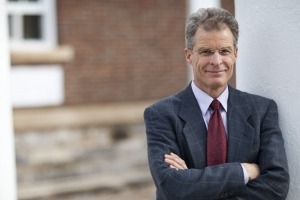
For me the pursuit of letters started early, and there’s no end in sight. I can’t remember learning to read. Since childhood I have been absorbed in books: what they teach about the world, how they constitute other worlds, and how imagination brokers an unceasingly various relationship between what we are made up of and the stories we make up in order to discover who, individually and collectively, we are. Writing is power; so is reading. How to use such power forms the intellectual passion of my life; how literature has used it, for good and for ill, has formed the subject of my scholarship and teaching for four decades, the last three of them at UVa.
Historically my work centers on writings from the 19th century, when modernity became industrial and imperial, when a mass audience for literature asserted itself, and when most of the modern disciplines arose that shape education to this day. Generically I focus on the study of poetry, which is literature in its most concentrated, verbally articulated, and beautiful mode. That said, as a teacher I’m pretty promiscuous, and am as likely to teach a course on Darwin or money as on Shakespeare or the ode.
By literature, then, I mean in the first instance the plays and essays, fiction and poetry, that are staples of an English department curriculum. But the actual province of literature is much wider than that. I want my students to be reading science, history, psychology, scriptures, social and cultural theory, and to correlate what we find there with imaginative writing, along a two-way street. Cultural and historical knowledge on one hand informs both the content of a literary text and the context in which it was produced; on the other hand, the habits of interpretation we hone on an artistically crafted lyric or story show us that information too has a form, which it behoves us to grasp and evaluate as further information in its own right. Close attention to the feedback loop between meaning and structure is what I try hardest to teach in my classes, lectures, articles, and books. I think it’s the essential contribution of humanistic study to liberal education, especially in a distracted era like ours when paying close attention to anything is an act with radical potential.

